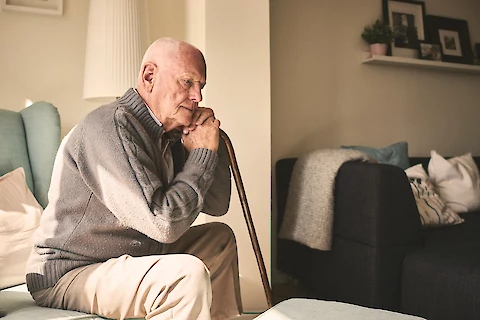
The Do's and Don'ts of Bringing Up the Health Concerns of Loneliness for Seniors
Loneliness isn't just devastating to a senior's emotional state. It can also have a number of detrimental impacts on their health, including increased risk of heart disease, high blood pressure, cognitive decline, and even a weakened immune system. Unfortunately, bringing up your concerns about those potential health worries to an aging loved one can feel incredibly frustrating. You don't want it to seem as though you're being condescending, but you do want to make sure your loved one knows the potential dangers and is prepared to address those concerns in a healthy manner.
How can you bring up the health concerns of loneliness for seniors, especially if you have recently noticed a decline in overall social wellness or your loved one has recently lost a spouse or close friend? There are several do's and don'ts that you may want to take into consideration.
Do: Look for Ways to Stay Connected
Your senior loved one may be reluctant to reach out on their own, especially if they don't want to be a "bother." Look for ways to stay--and feel--connected, which can help your senior loved one feel more confident about the whole conversation. Offer practical, real-world ways you can spend time with senior loved ones, whether that means getting together for a meal or a walk around the block, or calling or connecting through a video call on a regular basis. Even seemingly small interactions can help alleviate that loneliness.
Don't: Ignore Your Loved One's Concerns
Many seniors feel particularly vulnerable right now because of Covid-related concerns. They may be reluctant to venture out of their homes often, or to spend time with large groups of people. As you're considering the potential health impacts of loneliness, listen to your loved one's other concerns, too. Are they worried about germ exposure? Have they noticed lower energy levels that may make it more difficult for them to participate in energetic activities? Take the time to listen to what your loved one has to say and to come up with potential solutions to those concerns.
Do: Make It an Ongoing Dialogue
Keep in mind that addressing loneliness isn't a one-and-done proposition. In many cases, you may need to make plans for an ongoing conversation or regular visits. Furthermore, your loved one's needs may change based on their current activity levels, friends and family members in the area, and even the time of year. Start an ongoing discussion about loneliness and how to alleviate it.
Don't: Present Worries Without Facts
Many seniors start to feel as though their loved ones' worries are unfounded or unnecessary. Worries without facts could leave them alienated or feeling out of sorts. Offer facts to go along with your concerns to make it easier to address those issues with your loved one. Share concrete information. Using clear resources can also help your loved one know what to look out for.
Do You Have a Senior Loved One Struggling With Loneliness?
At Senior Helpers Metairie, we help provide assistance for seniors in the Metairie and Kenner areas who may be struggling with self-care, getting out of the house, or other common tasks as they age. Having a caregiver can also help alleviate some of those symptoms of loneliness. Contact Senior Helpers Metairie to learn more about how we can help.